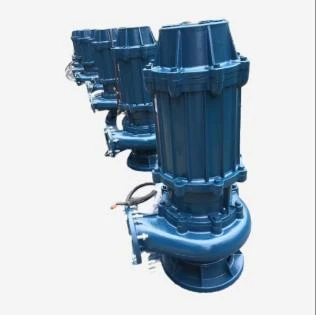English
- Afrikaans
- Albanian
- Amharic
- Arabic
- Armenian
- Azerbaijani
- Basque
- Belarusian
- Bengali
- Bosnian
- Bulgarian
- Catalan
- Cebuano
- Corsican
- Croatian
- Czech
- Danish
- Dutch
- English
- Esperanto
- Estonian
- Finnish
- French
- Frisian
- Galician
- Georgian
- German
- Greek
- Gujarati
- Haitian Creole
- hausa
- hawaiian
- Hebrew
- Hindi
- Miao
- Hungarian
- Icelandic
- igbo
- Indonesian
- irish
- Italian
- Japanese
- Javanese
- Kannada
- kazakh
- Khmer
- Rwandese
- Korean
- Kurdish
- Kyrgyz
- Lao
- Latin
- Latvian
- Lithuanian
- Luxembourgish
- Macedonian
- Malgashi
- Malay
- Malayalam
- Maltese
- Maori
- Marathi
- Mongolian
- Myanmar
- Nepali
- Norwegian
- Norwegian
- Occitan
- Pashto
- Persian
- Polish
- Portuguese
- Punjabi
- Romanian
- Russian
- Samoan
- Scottish Gaelic
- Serbian
- Sesotho
- Shona
- Sindhi
- Sinhala
- Slovak
- Slovenian
- Somali
- Spanish
- Sundanese
- Swahili
- Swedish
- Tagalog
- Tajik
- Tamil
- Tatar
- Telugu
- Thai
- Turkish
- Turkmen
- Ukrainian
- Urdu
- Uighur
- Uzbek
- Vietnamese
- Welsh
- Bantu
- Yiddish
- Yoruba
- Zulu
Telephone: +86 13120555503
Email: frank@cypump.com
Nov . 10, 2024 01:52 Back to list
Understanding Ejection Pumps and Their Role in Efficient Fluid Management Systems
Understanding Ejection Pumps A Critical Component in Fluid Management
Ejection pumps, often referred to as ejector pumps, play a vital role in various industrial processes and systems, particularly in managing fluids. These devices are designed to transport liquids, slurries, or gases from one location to another, utilizing vacuum or suction principles. The importance of ejection pumps extends across several sectors, including wastewater treatment, petroleum, and manufacturing, highlighting their versatility and efficiency.
At their core, ejection pumps operate on a simple principle the conversion of energy from a high-pressure fluid into kinetic energy. This kinetic energy is then used to create a vacuum that draws in the fluid to be pumped. The ejection pump typically includes a nozzle, a mixing chamber, and a discharge port. The high-pressure fluid is introduced through the nozzle, where it expands and accelerates, drawing in the surrounding fluid. The mixture of the high-pressure fluid and the fluid being pumped is then expelled through the discharge port, allowing for effective fluid transfer.
One significant advantage of ejection pumps is their ability to handle abrasive and viscous materials. Unlike traditional centrifugal pumps, which can become clogged or damaged by such substances, ejection pumps are less susceptible to wear and tear due to their unique operational design. This makes them particularly suitable for applications in wastewater treatment, where solid particles and contaminants are commonplace. Ejection pumps can efficiently transport sludge and other challenging materials without compromising their performance.
Moreover, ejection pumps require minimal maintenance compared to mechanical pumping systems
. With fewer moving parts, the risk of mechanical failure is significantly reduced, leading to lower operational costs and increased reliability. This aspect is especially beneficial in remote or harsh environments, where maintaining complex machinery can be both difficult and costly. As a result, industries are increasingly turning to ejection pumps as a practical solution for their fluid management needs.ejection pump

In addition to their practical advantages, ejection pumps play an essential role in environmental protection. By facilitating efficient wastewater treatment processes, they help prevent the contamination of natural water bodies and ensure compliance with environmental regulations. Effective fluid management in industrial settings reduces the risk of spills and leaks, contributing to the overall safety and sustainability of operations.
Ejection pumps come in various designs and sizes to suit different applications. From small-scale systems used in agricultural irrigation to large industrial setups handling massive volumes of fluid, these pumps can be customized to meet specific requirements. Furthermore, advancements in technology have led to the development of more efficient and environmentally friendly ejection pumps, which optimize energy use and minimize waste.
As industries continue to evolve and face new challenges, the role of ejection pumps in fluid management will likely become even more critical. The demand for reliable, efficient, and eco-friendly pumping solutions is growing. Therefore, understanding the operations and benefits of ejection pumps is crucial for engineers, plant managers, and environmental professionals alike.
In conclusion, ejection pumps are essential tools in the management and transportation of fluids across a wide range of industries. Their ability to handle difficult materials, require less maintenance, and promote environmental sustainability makes them invaluable. As technology advances and the need for efficient fluid management solutions grows, ejection pumps will undoubtedly remain at the forefront of industrial operations, proving their worth in modern fluid dynamics.
-
Horizontal Split Case Pump with GPT-4 Turbo | High Efficiency
NewsAug.01,2025
-
ISG Series Pipeline Pump - Chi Yuan Pumps | High Efficiency, Durable Design
NewsAug.01,2025
-
Advanced Flue Gas Desulfurization Pump with GPT-4 Turbo | Durable & Efficient
NewsJul.31,2025
-
ISG Series Vertical Pipeline Pump - Chi Yuan Pumps | Advanced Hydraulic Design&Durable Construction
NewsJul.31,2025
-
ISG Series Vertical Pipeline Pump - Chi Yuan Pumps | Energy Efficient & Low Noise
NewsJul.31,2025
-
pipeline pump - Chi Yuan Pumps Co., LTD.|High Efficiency&Low Noise
NewsJul.31,2025










